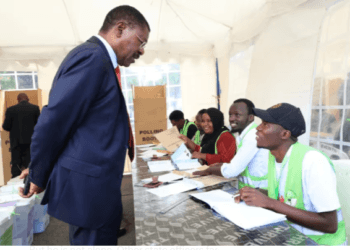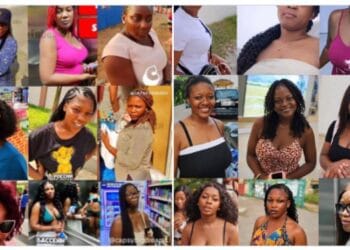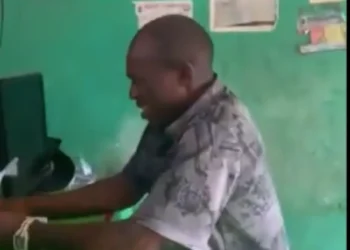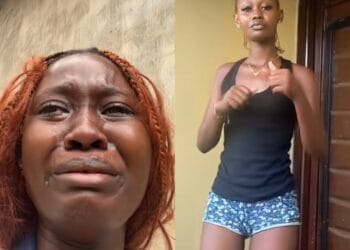Kenyan TikToker Diana Mbula was arrested on July 14, 2025, following a controversial video shared by journalist Francis Gaitho, which allegedly contained defamatory claims about a former romantic partner.
The video, posted on Mbula’s TikTok account on July 11, 2025, accused the individual of involvement in a gang-rape incident inside a car, claims later debunked by authorities due to the absence of a supporting police report.
Gaitho’s reposting of the video on X amplified its reach, sparking public outrage and leading to Mbula’s detention at a Nairobi police station, where she faces charges of cyber harassment and defamation.
Diana Mbula, a 23-year-old content creator from Nairobi with over 100,000 TikTok followers, gained popularity for her bold commentary on social issues and vibrant dance videos.
Her recent video, which went viral after Gaitho’s repost, alleged serious criminal behaviour by a named individual, prompting swift action from the Directorate of Criminal Investigations (DCI).
Authorities stated that Mbula’s claims lacked evidence, as no formal complaint or police report corroborated the accusations.
Here is the video that got TikToker Diana Mbula arrested posted on Friday night. pic.twitter.com/GdOmsmiTEC
— Francis Gaitho (@FGaitho237) July 15, 2025
The video’s inflammatory nature led to her arrest under Kenya’s Computer Misuse and Cybercrimes Act, which addresses the spread of false or harmful information online.
The incident has ignited a heated debate on X, with users divided over Mbula’s arrest. Some, like @Haya_tea22, argue that she was exposing a serial offender and was unfairly targeted, claiming, “Diana Mbula exposed a serial rapist in Nairobi, and he got her arrested.”
Others, including Gaitho’s post, emphasise the need for verified information before making public accusations, noting that Mbula’s video caused significant reputational harm.
The controversy highlights the challenges of balancing free speech with responsible content creation, especially in Kenya’s vibrant social media landscape, where influencers wield significant influence.
Mbula’s supporters argue that she intended to raise awareness about gender-based violence, but critics stress that unverified claims can escalate into public shaming and legal repercussions.
Francis Gaitho, a controversial journalist known for his outspoken critiques, played a pivotal role in amplifying Mbula’s video, reposting it to his 50,000 X followers.
His actions drew both praise for highlighting the issue and criticism for fuelling a potentially baseless narrative. Gaitho later clarified on X that Mbula’s allegations were debunked, urging content creators to verify information before posting.
The broader context of Mbula’s arrest reflects Kenya’s ongoing struggle with online accountability. Recent Gen Z-led protests have amplified the role of social media in shaping public discourse, with influencers like Mbula at the forefront.
However, cases like hers highlight the legal boundaries of digital activism. The DCI has increased monitoring of social media platforms, with 2024 seeing a 30% rise in cybercrime cases involving defamation and misinformation.
Mbula’s detention has sparked calls for clearer guidelines on content creation, with advocates urging the government to balance freedom of expression with protections against harm.
Mbula’s legal battle is ongoing, with her lawyer, Jane Wambui, arguing that her client’s arrest was an overreach, as the video was intended to spark dialogue about women’s safety.
The case has drawn comparisons to past Kenyan influencer scandals, such as the 2020 fraud case involving Mariam Mbula, a London-based fraudster with no relation to Diana.
As Mbula awaits a bail hearing, her case shows the risks of viral content in an era of heightened digital scrutiny, with implications for Kenya’s influencer community and beyond
















